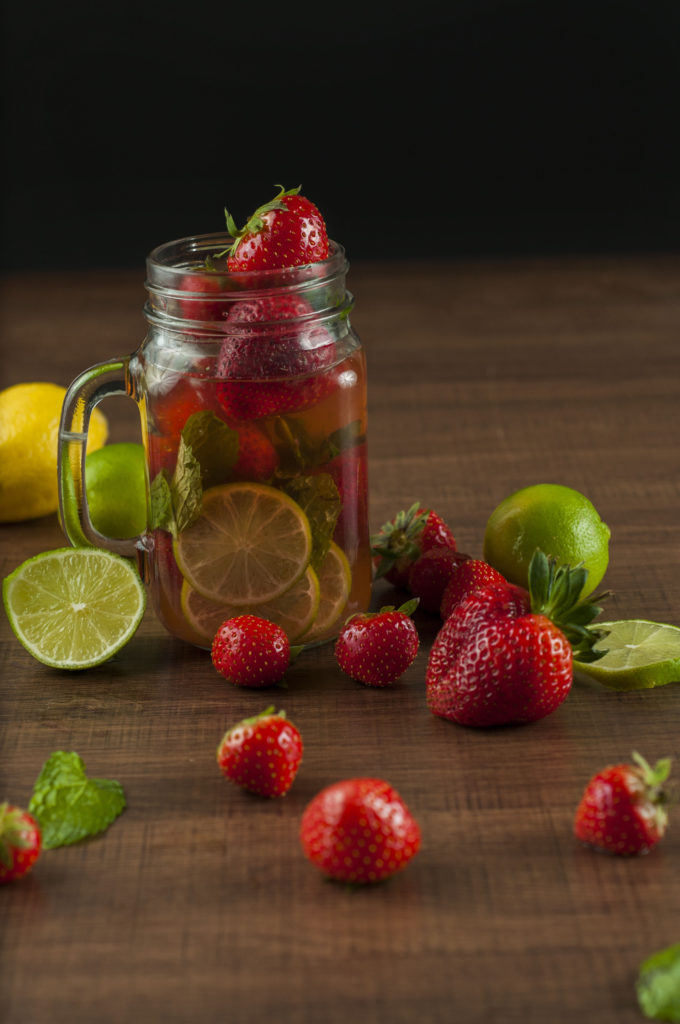New Year, New Detox Program?
For many, a brand-new year means a reset; a way to bring their health and wellness back into focus and give them a blank slate to tackle their goals. Everyone from Instagram celebrities to your next door neighbor are touting detox programs and juice cleanses that promise slimmer waist lines, better energy and clearer skin. But are these expensive programs worth it? Well, let’s start with the basics…
What exactly is detoxification?
Our bodies are truly amazing. Detoxification is a complex system governed by our liver that also involves our kidneys, lymphatic system and colon. It reduces our toxic burden by eliminating toxins, chemicals and pollutants. These toxins are neutralized in a two step process. In phase one, the Cytochrome P450 enzymes work to pull stored toxins into the bloodstream. In phase two, the toxic substances get converted into water soluble compounds that can get eliminated through bile, the intestines or our skin. One of the byproducts of detoxification is the toxic ammonia, that must be neutralized in the kidneys. Further, our lymphatic system is the like the highway of the detox system. Fluid travels through the lymph and waste and toxins get filtered out in our lymph nodes. If any of these systems become compromised, we won’t be detoxing as well as we could!
What’s the deal with juice cleanses?
Juicing is promised to restore deficient nutrients, cause weight loss and improve our detoxification pathways. While juicing can be a healthy part of a detox plan, it’s important to not rely on pricey programs and be savvy about their limits. Many of these programs are expensive and are really just a low calorie diet that gives your intestinal tract a break by drinking only liquids for a period of time. They can also be very high in sugar and might cause more harm than good. Juicing your own green vegetables at home is far and away a better option in most cases.
Support your detoxification system for long term health!
There are many factors that dictate how well we detox and our individual toxin burden. These include how many environmental chemicals or toxins we are exposed to, if we drink alcohol or smoke, if we take prescription medications or over the counter NSAIDS, how much water we drink, how well we sleep, and what our overall diet looks like. It is more beneficial to instill long term health and lifestyle habits that will support your detoxification pathways long term.
Here are five easy ways to lower your toxic burden and support liver function for a healthier you in 2019!
1. Drink lots of clean, filtered water. Experts say half your body weight in ounces up to 100 oz. and maybe more if you are losing water in sweat during exercise. Avoid drinking tap water or bottled water that is likely contaminated with fluorides, bromides and chlorides
2. Use an infrared sauna. Sweat is a great way to support detox since toxins are flushed out through the skin.
3. Exercise. Get your sweat on for at least 150 minutes weekly. Choose activities like brisk walking, running, yoga, or weight training. If you are unable to perform moderate to intense exercise, practice gentle movement like swimming, recumbent biking, water aerobics, yoga, or tai chai.
4. Eat lots of veggies. Aim for 8-10 servings of non-starchy vegetables daily. Vegetables are packed with protective phytonutrients and antioxidants that support cellular function and boost fiber intake. Cruciferous vegetables like broccoli, cauliflower, cabbage and Brussel sprouts are sulfur containing and are detox powerhouses, supporting the liver tremendously. Some favorite recipes include this one for Roasted Veggies with Ginger & Nutmeg or this one for Roasted Beet & Carrot Salad.
5. Clean up your world much as possible. Avoiding exposure to pesticides, herbicides, chemicals and other environmental toxins can help lower total toxic burden and increase detoxification efficiency. Ways to do this include eating organic, non GMO fruits and vegetables, choosing organic, grass fed and pasture raised beef and poultry, not heating food in plastic ware, choosing canned goods in BPA free cans, and making sure your beauty products are free of sodium lauryl sulfate, parabens and phthalates.
Finally, remember that small changes go a long way to bettering health and detox. Sometimes the simplest steps set us up for amazing improvements. Here’s to better health for you and yours in 2019!
For more information or to schedule an appt, give us a call at 724-814-0247!
Written and contributed by Liz McKinney, MS, CNS, LDN



